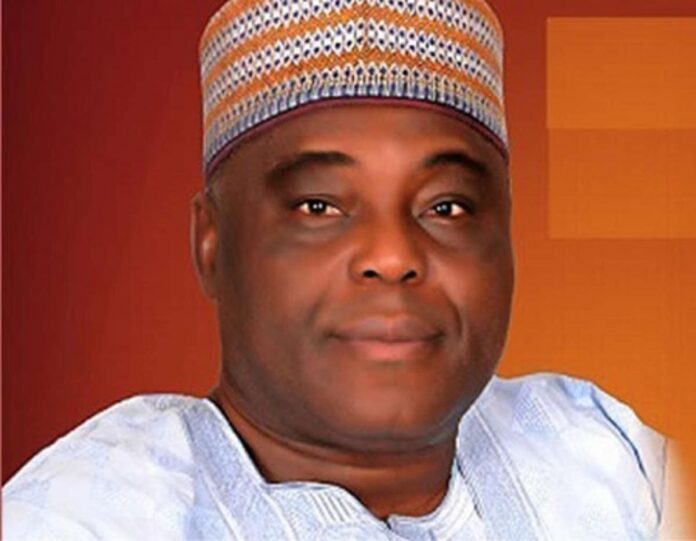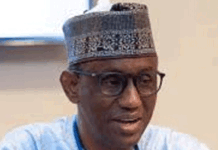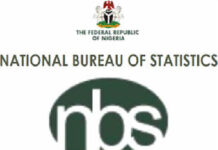.As agency boss indicts bankers over fraud
The Chief Judge of the Federal High Court, Justice John Tsoho has ordered the Economic and Financial Crimes Commission, EFCC, to remove the founder of the African Independent Television AIT, Chief Raymond Dokpesi from its watch list.
Justice Tsoho held that there was no justification for the anti-graft agency to continue to keep Dokpesi on the watchlist since there is no criminal charges or allegations pending against him.
Ruling in an application filed and argued by his counsel, Mr Kanu Agabi, SAN, the Chief Judge said that keeping Dokpesi on the watch list will amount to disobedience to the Court of Appeal judgment which in April this year quashed the N2.1B money laundering charges against him.
The Court of Appeal sitting in Abuja had on April 1, this year dismissed the N2.1 billion naira money laundering charges filed against Dokpesi by the EFCC.
The court upheld the no-case submission filed by Dokpesi and DAAR Communications in the seven-count criminal charge.
In the judgment, Justice Elfreda Oyebisi Williams-Dawodu had held that the anti-graft agency, the EFCC failed to establish a prima facie case against Mr. Dokpesi in the charges.
The appellate court had held that the ingredients of the offences were not provided by the prosecution as required by law.
The court had agreed with counsel to the appellant, Kanu Agabi that being a predicate offence, the ingredients of the offences against his client must be clearly provided, adding that it is clear that none of the offences was established in line with provisions of the Nigerian laws.
The court had further held that EFCC failed to prove that the N2.1 billion allegedly received by the appellant as payment was a proceed of breach of trust.
A federal high court in Abuja had in November 2018 dismissed the no-case submission filed Dokpesi on the grounds that a prima facie had been established against him by the EFCC in the alleged N2.1B money laundering.
Not satisfied with the ruling of the high court, Dokpesi approached the Court of Appeal and asked that the ruling of the lower court be set aside and his no-case submission be upheld.
Justice William-Dowodu in a unanimous judgment on April 1, 2021, held that there was nothing in the evidence of the 14 witnesses called by EFCC to persuade the court to compel the appellant to enter a defence in the charges where ingredients of the offence were not provided
Meanwhile ,the Chairman of the Economic and Financial Crimes Commission (EFCC), Abdulrasheed Bawa, on Monday, said fraudulent activities are going on in financial institutions across the nation, especially in the banking industry.
Bawa said the EFCC directive that bankers should declare their assets was not to witch-hunt them, but it was to save Nigeria from a serious crisis in the banking industry.
According to him, the EFCC and other stakeholders needed to sanitise the banking industry to rid it of rots and fraudulent activities, saying Nigeria could not afford another serious crisis in the banking sector.
Speaking at a capacity building workshop organised by the Nigeria Deposit Insurance Corporation (NDIC) for law enforcement agencies in Abeokuta, Ogun State, Bawa explained that the directive that bankers should declare assets was aimed at clearing “the rots that permeate the nation’s banking sector.”
This, he lamented, was misconstrued by those he said were “ignorant of the details of the Bank Employees Declaration of Assets Act.”
Represented by the Head of Lagos Zonal Office of EFCC, Ahmed Ghali, Bawa vowed that in spite the stiff opposition to the policy, the EFCC would ensure the country’s financial institutions were sanitised, calling on bankers, financial institutions and security agencies to partner with the EFCC to rid the nation of corruption and other financial crimes.
“We are aware of the different shades of fraudulent activities going on in our financial institutions, particularly in the banking industry sector.
“In dealing with this situation, the EFCC, under my watch, has intensified its engagement with bank executives, more than ever before,” Bawa said.
He explained further that, “I recall that upon assumption of office, one of the major pronouncements I made was giving a directive to bankers to declare their assets before June 1, 2021, knowing the rots that permeate the nation’s banking sector.
“Unlike the claims in some quarters, it is not a witch-hunt; rather, it is part of measures to sanitise the country’s financial institutions.”
In his words, the Managing Director and Chief Executive Officer of NDIC, Mr. Bello Hassan, disclosed that the workshop was to give the corporation the opportunity to share information with law enforcement agencies on the developments in the banking industry.
Hassan added that the corporation had started paying compensations of insured amounts to customers of the 42 banks whose licences were withdrawn by the Central Bank of Nigeria (CBN) in 2020.





















